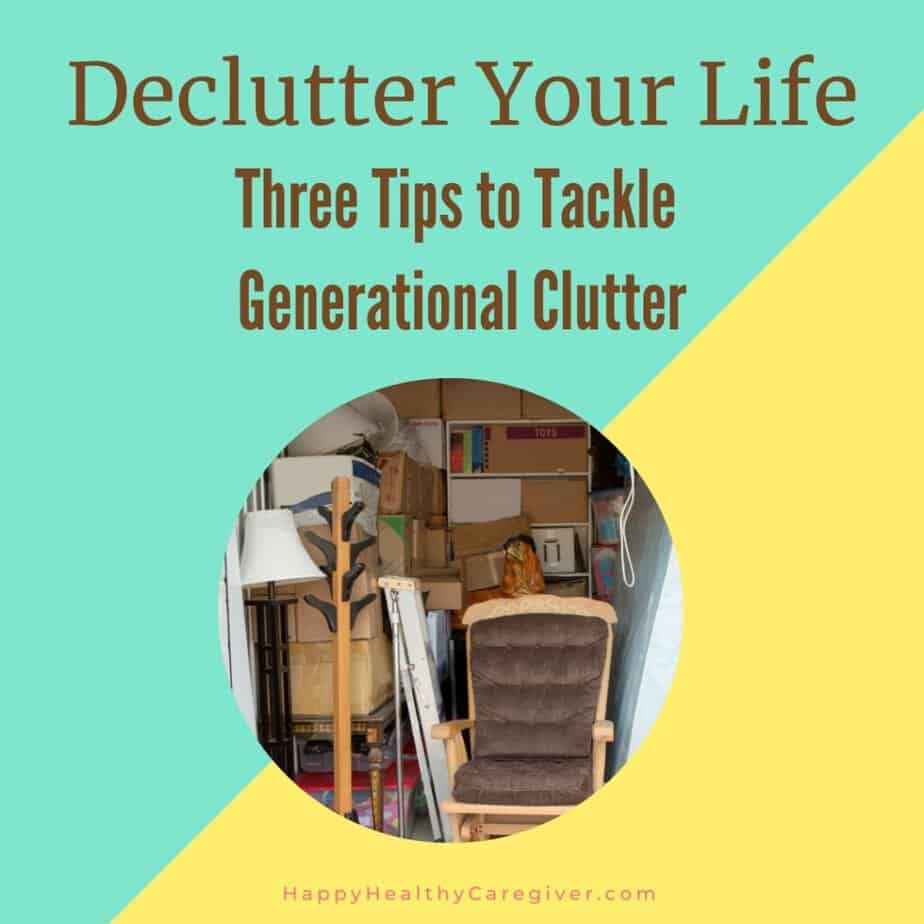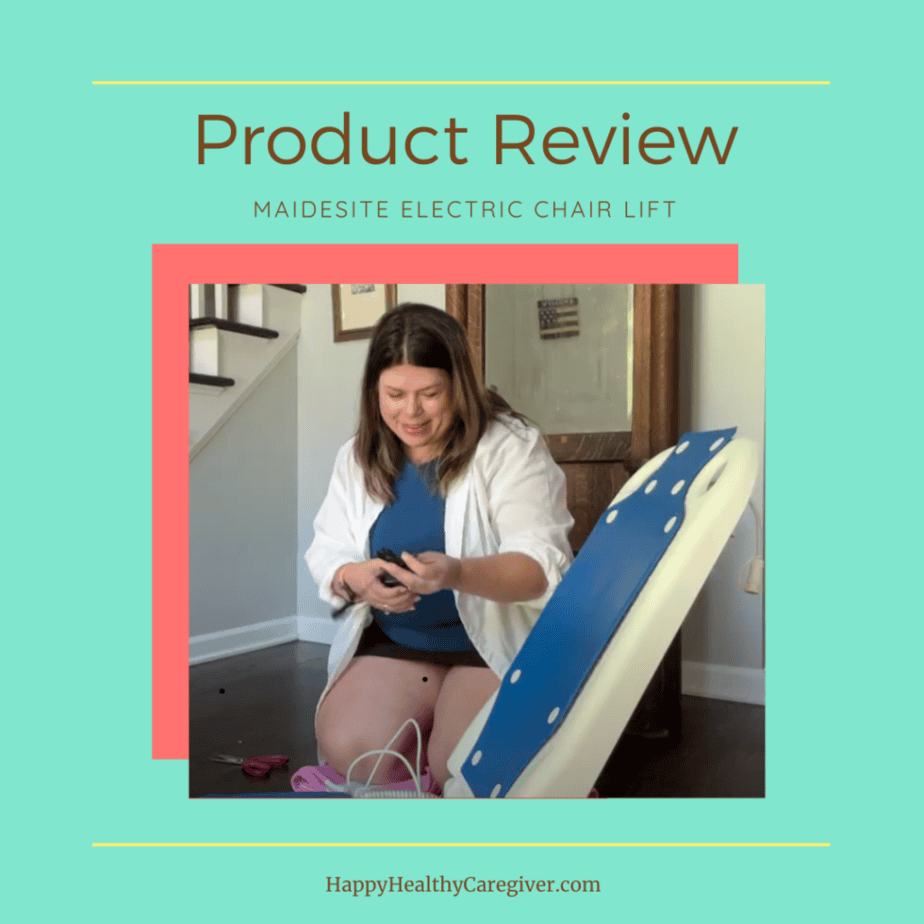A guest post written for Happy Healthy Caregiver by Dr. Ashwini Bapat
Ever get that sinking feeling in your stomach when you think about having “the talk” with your parents? You know, the one about where they’ll live, how they want to be cared for, and their medical wishes as they age.
It’s awkward, emotional, and easy to avoid (I know I did!).
But as a palliative care doctor, I’ve seen first-hand the heartbreak that comes from NOT having these vital conversations.
Take Sarah*. She was in her mid-40s, juggling work, raising teenagers, and caring for her dad with dementia. They never discussed his wishes, but he made it clear that the only way he was leaving his house “was in a pine box” and that he “never wants to go to a nursing home.” When he fell at home, Sarah was overwhelmed with guilt and stress, torn between his safety and his stubborn wishes.
Sound familiar? 🙋
What if it didn’t have to be this way? What if a simple conversation could save you from the caregiver guilt, the “what if” game, and help you “do right” by your loved one?
Here are 5 powerful tips for starting “the Talk” with your parents, in-laws, or other loved ones.

Tip #1: Timing is Everything
You DO NOT want to spring this conversation on them out of nowhere. Instead, give them a gentle heads-up and find a time that works for both of you.
Try This: “I love you, and I’ve been thinking a lot about you and the future. Can we set aside some time to discuss your health and wishes so we’re all on the same page?”
Or This: “You’ve mentioned how tough it is seeing friends in and out of the hospital, especially what happened with [insert name of friend]. I’d love to hear your thoughts on your health and what kind of care you’d want if you ever find yourself in a similar situation. Can we carve out some time to chat?”
Consider making it a casual outing—grab a cup of coffee or go for a walk. Whatever you choose, remember to put it on the calendar so that it will actually happen!
Tip # 2: Don’t Assume You Know What’s Best
This tip is HARD! When a close loved one got diagnosed with dementia, I went into full-on fix-it mode. I listed the following steps and evaluations they needed, thinking I knew exactly what was best for them.
But guess what? When we sat down to talk about life with dementia, I got a wake-up call. They didn’t want a barrage of tests and scans. They wanted to keep living their life—walking, gardening, playing soccer with the grandkids, and spending time with family. They had seen their mom go through dementia and were somewhat at peace with what might come—I wasn’t.
So when you have “The Talk,” listen more than you speak, and do your best to tune in to their perspective.
Try asking: What do you mean when you say [insert what needs clarification]….?
Remember, the goal of the first conversation isn’t to draft a master plan. It’s to truly ‘get’ what your loved one is thinking and how they see things unfolding.
Tip #3 Start With the Easier Questions
I know you’ve got a laundry list of questions for your parents, in-laws, or loved ones. Write them all down. Then go back and circle the 1 or 2 questions that may be easier for your loved one to talk about— icebreakers, to EASE into the conversation without freaking anyone out.
For example, with my parents, it was much easier to talk about where they’d like to live as they get older than to jump straight into their medical or end-of-life preferences. Other families might breeze through end-of-life talks but hit a wall when talking about who’s paying for eldercare.
So, start with the low-hanging fruit. Pick the easy questions and get the conversation going!
Tip #4 It’s not a one-and-done conversation
Too many loving, well-intentioned family caregivers try to tackle everything in one massive, epic conversation. We’re talking about living arrangements, finances, medical care preferences, and end-of-life wishes—the whole shebang. But guess what? That’s WAY too much for most people. It’s overwhelming, emotional, and just too intense.
Pro Tip💡: The goal of the first conversation is to get invited back for a second conversation. Even if your loved one doesn’t share much this time, you’ve planted a seed you can water and nurture in future chats.
So, keep it light and compassionate, and remember to take it one conversation at a time.
Tip #5 A Professional Third Party Can Help
Families are complicated; sometimes, despite your best intentions, your loved one might not feel comfortable opening up directly to you. Maybe their health challenges make it hard for them to talk, or perhaps you don’t have the healthiest relationship.
These are some scenarios where enlisting the help of a professional third party, like a caregiver coach or medical team member trained in having these conversations, can be a real game changer. They can facilitate these sensitive conversations or create a safe space for your loved one to figure out their wishes—how they want to live and be cared for as they age—before sharing them with you.
Here’s why this hits home for me: My parents were open to talking about living arrangements and finances, but when it came to medical and end-of-life preferences, they couldn’t go there with me. So they sat down for a coaching session with Caitlin, my colleague, a rockstar caregiver coach, and a palliative care physician. They felt at ease with her to talk things through and afterward shared their health and care wishes with me.
Their wishes gave me a solid understanding of what matters most to them. So, when tough decisions arise, I can discuss their values and wishes with the care team, and we can use these values as guideposts to make the best possible care decisions.
Take Action
Start the conversation – because when that 2 a.m. call from the hospital comes about your parent, you want to be saying, “Thank God I talked to Dad,” instead of “I wish I had.” You’ll be able to advocate for your loved one and honestly “do right” by them.
I’ve never met anyone who regretted starting “the talk.” But I’ve met countless people who regret never having it.

The advice offered is for general information only; consult your healthcare team, legal, or financial advisors for guidance on your particular situation.
*Name changed to protect privacy




